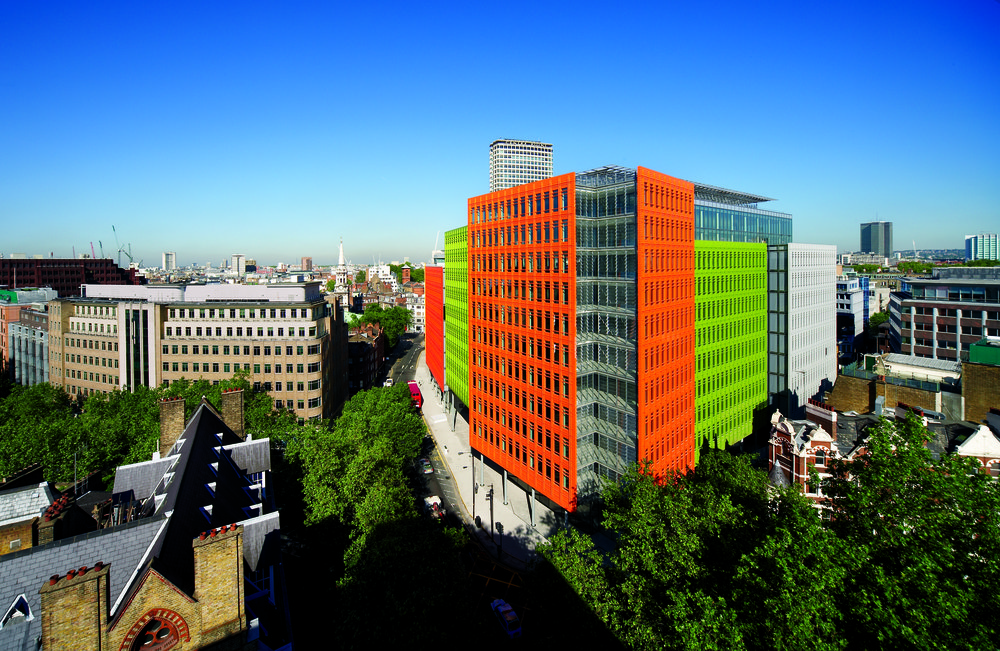UK Bosses Rethink Physical Office Spaces, Slack Finds

End of physical offices and the 9 to 5? New research from Slack suggests 98 percent of UK bosses have rethought physical office space needs
Potential bad news for commercial landlords, as new data from business communication specialist Slack, has revealed UK bosses are reducing their investment in physical office spaces.
Indeed, the survey of 200 UK c-suite executives and government officials, done in partnership with the Economist Impact, revealed that 98 percent of UK leaders have either rethought their physical office space, invested in hybrid working technologies, or plan to do so.
It is fair to say that the Coronavirus pandemic has seen many corporate offices close down, with staff being instructed to work from home for the foreseeable future.
It comes amid reports that train operators running commuter services into London are seeing less than halve the number of passengers, compared to before the pandemic began back in Q1 2020.
![]()
Digital offices?
The research data from Slack suggests that the era of the physical office is over, as more and more businesses opt for flexible and agile approaches to work, which in turn is driving investment in digital workplaces.
The Slack poll found that 86.5 percent of respondents rate flexibility as a medium-to-critical priority.
Indeed, the desire for flexibility is often cited as a major reason for the ‘great resignation’ that has taken place over the past couple of years, as workers reassess their work-life balance.
But the Slack research that found that 98 percent of UK leaders have either rethought physical office space, invested in hybrid working, or plan to do so, is a startling revelation.
Indeed, the research suggests that digital HQs, centralised spaces for work and social interactions that connect people, systems, partners and customers, are a priority, with 71.5 percent confirming investment in them would increase.
The poll found over one-third (36 percent) stated that a digital HQ investment would be ‘significant’.
In contrast, in-person workspaces are the area firms are most likely to plan to reduce investment, with one in ten (10.5 percent) stating this.
Flexible working
And it seems that businesses are reacting to changing staff attitudes, as providing flexible and agile approaches to work may be a key factor driving the increased investment in digital workplaces.
The Slack data found 86.5 percent of respondents rate flexibility as a medium-to-critical priority.
“Almost three years into the pandemic, the myth that productivity is tied to the physical office has been truly busted,” noted Pip White, senior VP and general manager, EMEA at Slack.
“With employees increasingly wanting to choose when and where they work, the HQ has become digital and the place to bring entire organisations together to collaborate, build teamship and problem solve,” said White.
“As this report confirms, for the UK’s leaders, that digital HQ is increasingly vital, becoming the home for both work and culture,” said White. “As we look ahead, firms should invest in digital HQ technologies to attract talent, build trust and unlock the competitive benefits of an agile and flexible future of work.”
Hybrid approach
But the Slack data shows that advancing from legacy business practises, doesn’t come without challenges.
Its poll found the ability to collaborate was the aspect most likely to have worsened during the pandemic with 12.5 percent of respondents highlighting this.
However, leaders are responding rapidly, with 69.5 percent confirming investment in workplace tech will increase in the next three years.
Further, in the era of the ‘Great Resignation’, employee retention has suffered for 11.5 percent of organisations – more so than customer retention which had fallen for just 9 percent.
This suggests that meeting demand for talent is becoming more challenging than securing buyers – reinforcing the need to create workplaces that use technology to empower teams and boost flexibility.
Over half (52 percent) confirmed that empowering teams with collaborative workplace tools and technologies is an area in which improvement is needed.
“In an era of hybrid work, with teams spread across offices and remote locations, the digital HQ is key to agility,” White added. “It’s encouraging to see the UK’s leaders focusing investment on tools which allow culture to flourish digitally.”
“These technologies allow us to unlock the intrinsic benefits of flexible, hybrid and agile work while building meaningful cultures, no longer tied to a physical office or a 9-5 mindset,” White concluded. “As work continues to evolve, agility and the digital HQ will enable all businesses to adapt to change, secure talent, and collaborate more effectively than ever.”
Continued investment
It should be noted however that some organisations are bucking any reduction in their office space.
Google in particular continues to invest significant sums of money in corporate office space.
Last month it said it was spending $1 billion to buy the London development Central Saint Giles,next to Tottenham Court Road station and Oxford Street.

Google is also building its new 11 story London headquarters next to the railway lines that run in and out of King’s Cross railway station.
![]()
In 2018 Google announced plans to spend $1 billion (£790m) on a new presence in New York City.
Then in September 2020 Google sought to lease an additional 70,000 sq ft in office buildings in London, after it had apparently agreed to extend its lease at the Central Saint Giles site near Tottenham Court Road, for a further decade.
But Google really cemented its real-estate intentions in March 2021, when it pledged to spend $7 billion on office space and data centres this year across the United States, with $250m set aside for New York City.
A few months later in May 2021 Google announced it would open a New York retail store in the Chelsea neighbourhood, to physically showcase its hardware products.
![]()